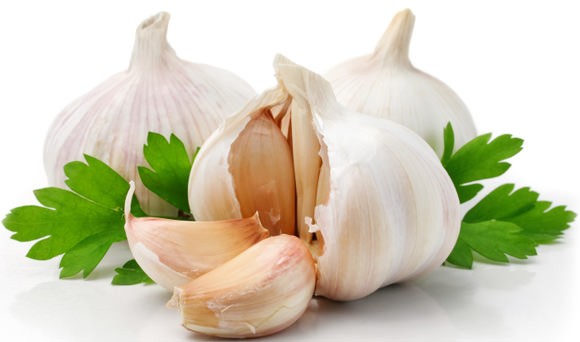On Friday, my father had a special habit. Once he had returned from work he used to take an entire garlic bulb, peel it and eat it. Most people use to eat one, two or at most three garlic cloves if at all. However, my father ate the entire bulb which made me always wonder how he could manage that. Today, he is almost 84 years old and travels the world as if he were eighteen. He is as strong as he can be. After I had grown up I realized that his secret was his preference for garlic. Although he also had made some poor choices regarding his health and way of living he was somehow able to balance these “diet failures” with his “Friday routine” eating garlic in great quantities. Considering that garlic has the power to fight viruses and infections 100 times more effectively than antibiotics because of the allicin, which is found in garlic in much more quantities than in any other food, is the best evidence for its uniqueness when it comes to battle disesases that are triggered by these viruses. In contrast to conventional antibiotics which often leads to antibiotic resistancy when taken regularly going along with a significant decrease of its efficacy, viruses can never become resistant to garlic. So, garlic is always going to reach its goal which is destroying any viruses and infections. Make sure to make garlic part of your weekly diet routine so you will also reap the entire health benefits of it.
“Let food be thy medicine, and medicine be thy food.”
Those are famous words from the ancient Greek physician Hippocrates, often called the father of Western medicine.
He actually used to prescribe garlic to treat a variety of medical conditions.
Well… modern science has recently confirmed many of these beneficial health effects.
Here are 11 health benefits of garlic that are supported by human research studies.
1. Garlic Contains a Compound Called Allicin, Which Has Potent Medicinal Properties
Garlic is a plant in the Allium (onion) family.
It is closely related to onions, shallots and leeks.
It grows in many parts of the world and is a popular ingredient in cooking due to its strong smell and delicious taste.
However, throughout ancient history, the main use of garlic was for its health and medicinal properties.
Its use was well documented by all the major civilizations… including the Egyptians, Babylonians, Greeks, Romans and the Chinese.
The entire “head” is called a garlic bulb, while each segment is called a clove. There are about 10-20 cloves in a single bulb, give or take.
We now know that most of the health effects are caused by one of the sulfur compounds formed when a garlic clove is chopped, crushed or chewed.
This compound is known as allicin, and is also responsible for the distinct garlic smell.
Allicin enters the body from the digestive tract and travels all over the body, where it exerts its potent biological effects (which we’ll get to in a bit).
Bottom Line: Garlic is a plant in the onion family, grown for its cooking properties and health effects. It is high in a sulfur compound called Allicin, which is believed to bring most of the health benefits.
2. Garlic Is Highly Nutritious, But Has Very Few Calories
Calorie for calorie, garlic is incredibly nutritious.
A 1 ounce (28 grams) serving of garlic contains:
- Manganese: 23% of the RDA.
- Vitamin B6: 17% of the RDA.
- Vitamin C: 15% of the RDA.
- Selenium: 6% of the RDA.
- Fiber: 1 gram.
- Decent amounts of Calcium, Copper, Potassium, Phosphorus, Iron and Vitamin B1.
Garlic also contains trace amounts of various other nutrients. In fact, it contains a little bit of almost everything we need.
This is coming with 42 calories, with 1.8 grams of protein and 9 grams of carbs.
Bottom Line: Garlic is low in calories and very rich in Vitamin C, Vitamin B6 and Manganese. It also contains trace amounts of various other nutrients.
3. Garlic Can Combat Sickness, Including the Common Cold
Garlic supplementation is known to boost the function of the immune system.
One large 12-week study found that a daily garlic supplement reduced the number of colds by 63% compared with placebo.
The average length of cold symptoms was also reduced by 70%, from 5 days in placebo to just 1.5 days in the garlic group.
Another study found that a high dose of garlic extract (2.56 grams per day) can reduce the number of days sick with cold or flu by 61%.
If you often get colds, then adding garlic to your diet could be incredibly helpful.
Bottom Line: Garlic supplementation helps to prevent and reduce the severity of common illnesses like the flu and common cold.
4. The Active Compounds in Garlic Can Reduce Blood Pressure
Cardiovascular diseases like heart attacks and strokes are the world’s biggest killers.
High blood pressure, or hypertension, is one of the most important drivers of these diseases.
Human studies have found garlic supplementation to have a significant impact on reducing blood pressure in people with high blood pressure.
In one study, aged garlic extract at doses of 600-1,500 mg was just as effective as the drug Atenolol at reducing blood pressure over a 24 week period (9).
Supplement doses must be fairly high to have these desired effects. The amount of allicin needed is equivalent to about four cloves of garlic per day.
Bottom Line: High doses of garlic appear to improve blood pressure of those with known high blood pressure (hypertension). In some instances, supplementation can be as effective as regular medications.
5. Garlic Improves Cholesterol Levels, Which May Lower The Risk of Heart Disease
Garlic can lower Total and LDL cholesterol.
For those with high cholesterol, garlic supplementation appears to reduce total and/or LDL cholesterol by about 10-15% .
Looking at LDL (the “bad”) and HDL (the “good”) cholesterol specifically, garlic appears to lower LDL but has no reliable effect on HDL.
Garlic does not appear to lower triglyceride levels, another known risk factor for heart disease.
Bottom Line: Garlic supplementation seems to reduce total and LDL cholesterol, particularly in those who have high cholesterol. HDL cholesterol and triglycerides do not seem to be affected.
6. Garlic Contains Antioxidants That May Help Prevent Alzheimer’s Disease and Dementia
Oxidative damage from free radicals contributes to the ageing process.
Garlic contains antioxidants that support the body’s protective mechanisms against oxidative damage.
High doses of garlic supplementation have been shown to increase antioxidant enzymes in humans, as well as significantly reduce oxidative stress in those with high blood pressure.
The combined effects on reducing cholesterol and blood pressure, as well as the antioxidant properties, may help prevent common brain diseases like Alzheimer’s disease and dementia.
Bottom Line: Garlic contains antioxidants that protect against cell damage and ageing. It may reduce the risk of Alzheimer’s disease and dementia.”
Related article: 23 benefits from eating garlic!
Recommended articles: 10 Proven Health Benefits of Garlic







